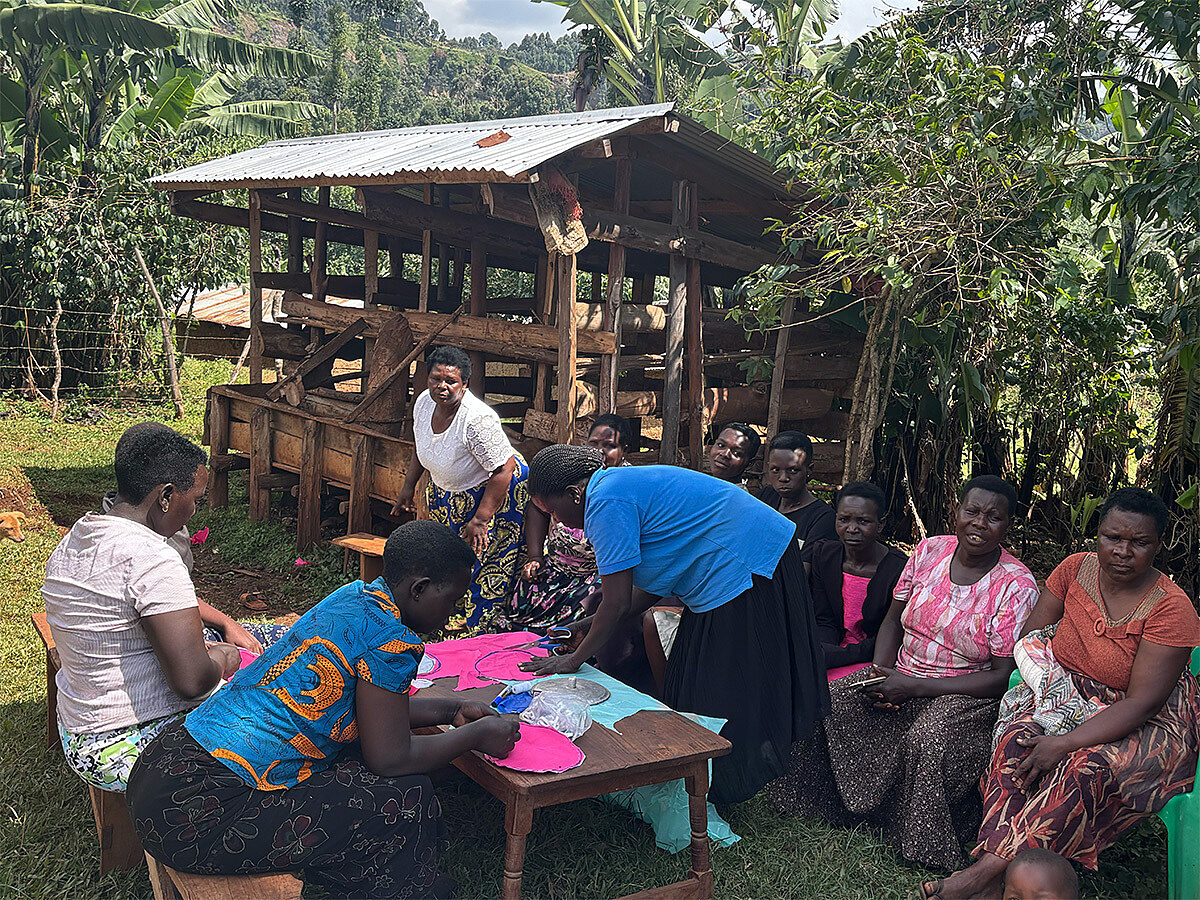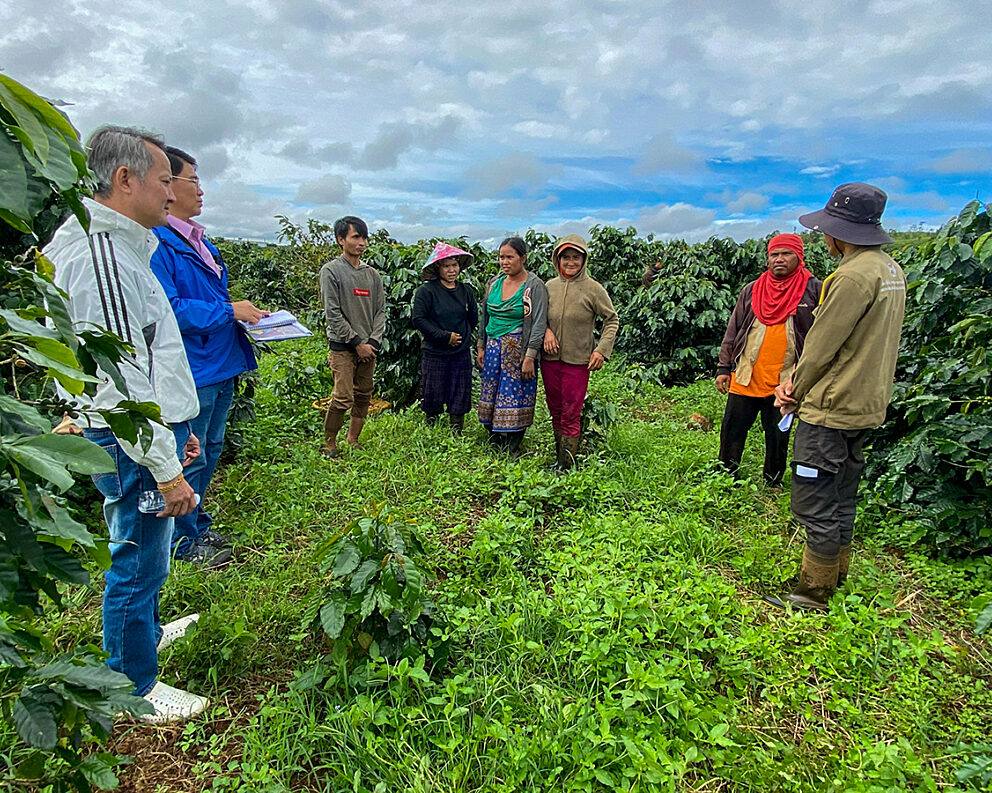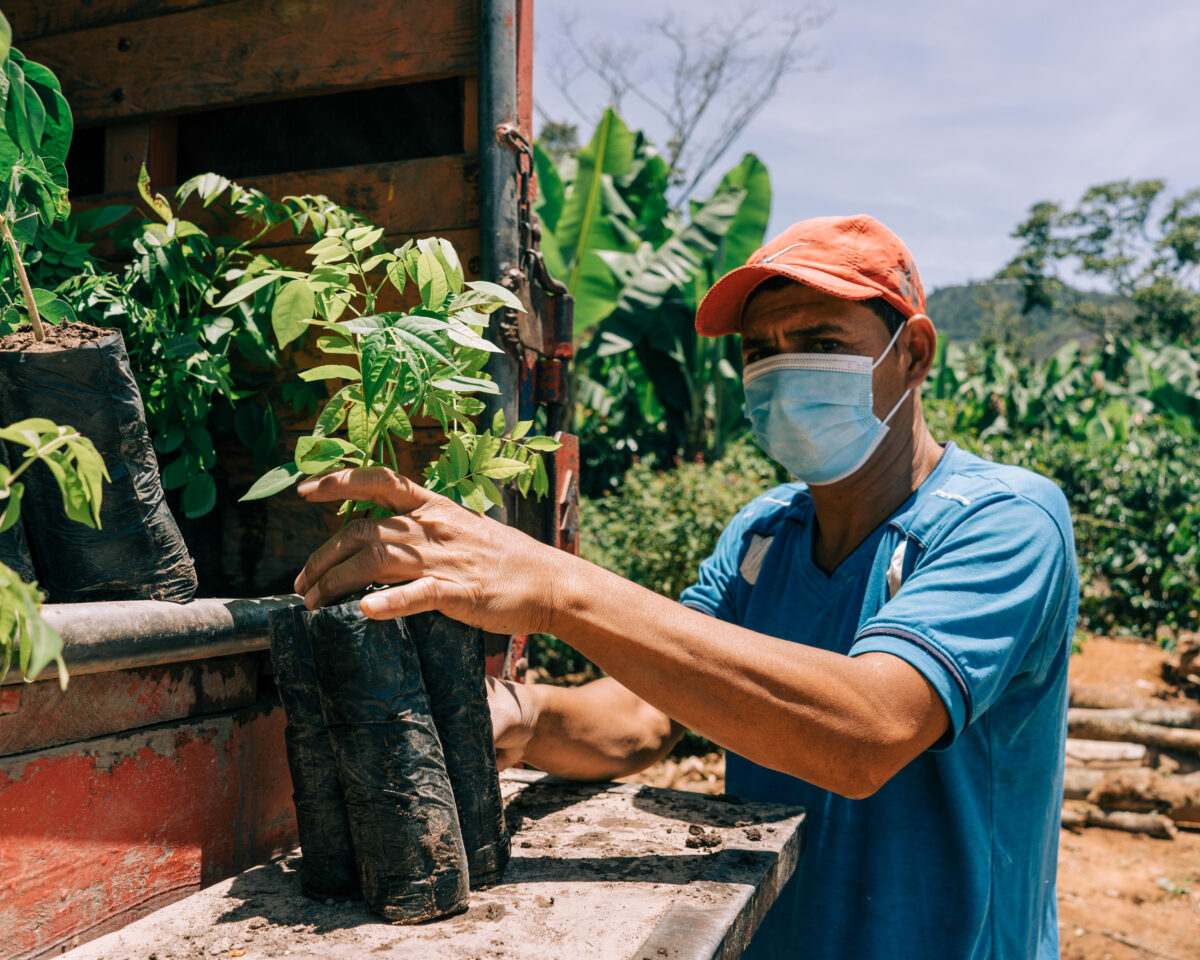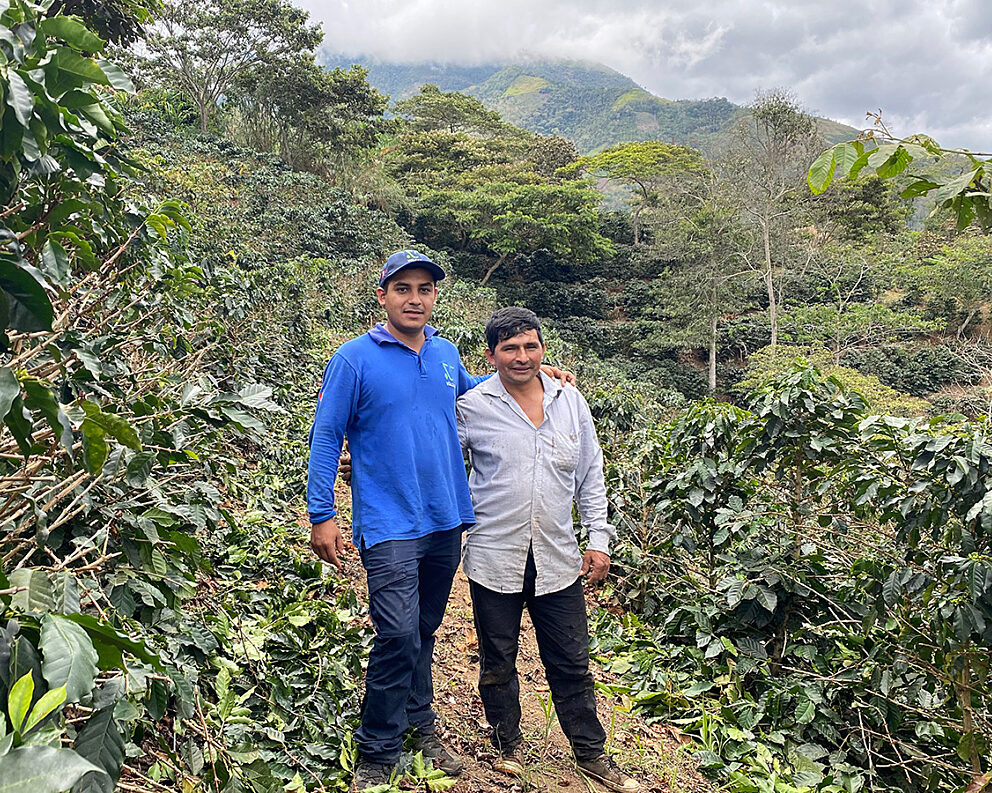Building business with Honduran coffee farmers
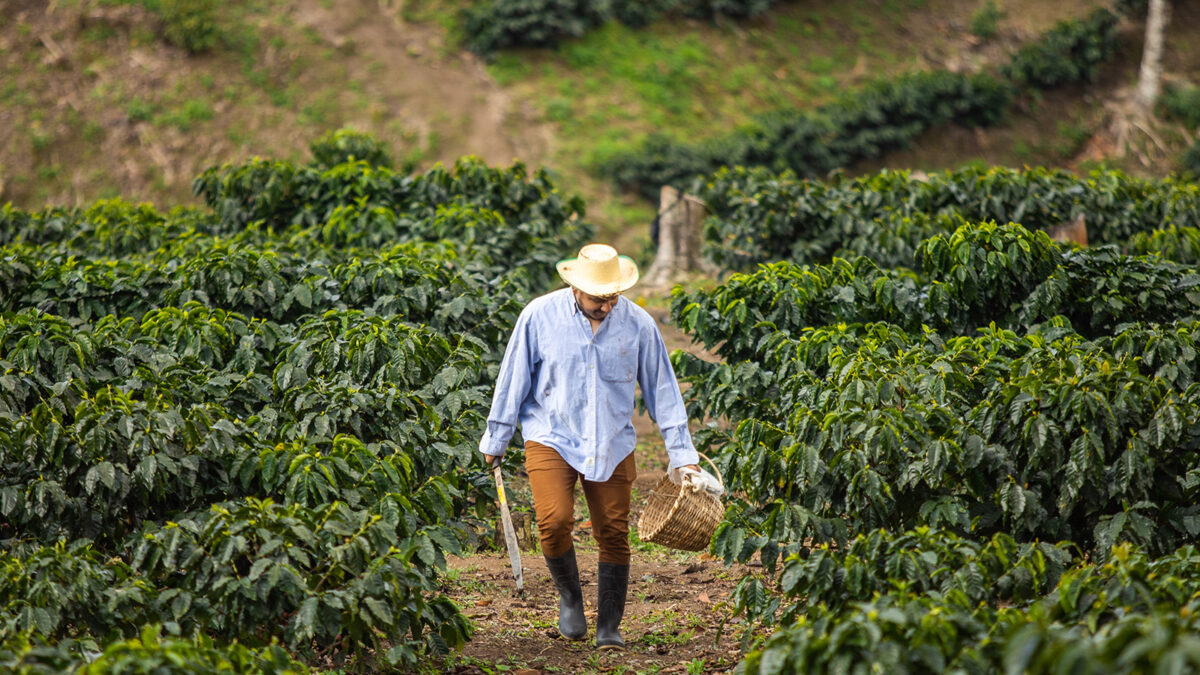
A farmer climbs a hillside to harvest some of his coffee. The rugged landscape in Honduras meant that farmers traditionally sold their coffee to local middlemen who would transport it onward to export facilities. Image: Molinos de Honduras
A shift in business strategy means more direct relations with farmers and new possibilities.
Honduras has grown into a major coffee origin, ranking as the world’s sixth largest producer despite its relatively diminutive size. With a range of growing conditions, the Central American country’s farmers produce diverse coffees sought by roasters and consumers. And yet despite this success, many farmers have faced an uphill struggle to get their coffee to market in a form that would earn them a just reward.
Quick facts
Country: Honduras
Objectives: Build direct trading relationships with coffee farmers, offering stable partnerships and technical support
Timeline: 2015 onwards
Impact: 8,000 smallholder farms are earning more by circumventing middlemen, applying sustainable agricultural practices, and reaching new markets
One key issue was logistical: smallholders scattered across the country lacked reliable channels to sell their harvest. In remote areas, farmers frequently resorted to selling their beans to a shifting array of middlemen. These local traders offered low prices and often mixed various beans without regard for quality or traceability – two traits increasingly valued by coffee roasters and consumers seeking specific flavour characteristics. Down the road the middlemen would also obtain a low price due to the mixed quality of their lots, creating a pattern that further undermined farmers’ earnings. With the viability of their farms threatened, some farmers began to abandon coffee growing for a life in the city or abroad – and others had to take a long, hard look at their options.
By choosing to work directly with the producers, we not only have changed the traditional way of purchasing coffee in the country, but more importantly, have created a positive impact in the coffee producers’ lifestyles, helping them increase productivity and receive a fair price for their hard work.
Observing these trends, Volcafe’s Honduran business, Molinos de Honduras, decided to fundamentally alter its purchasing strategy. In 2015, Volcafe began to establish direct relations with thousands of Honduran farmers, rather than buying from middlemen. While the change in business model was initially complex, this outreach began to yield benefits for farmers and those who love coffee.
By signing annual contracts directly with farmers, Volcafe has been able to offer coffee farmers a fairer price than what they previously received from the local middlemen.
Through the Volcafe Way farmer support programme and a collaboration with the nonprofit TechnoServe, farmers also receive training on business skills and support to implement sustainable agricultural practices which can improve yields and quality. As Seny Romel Cabrera, a coffee farmer in Morocelí, El Paraíso, explains, “I have seen the change in my farm productivity, in quality, and also in a very important aspect: it has reduced costs. For me it has been very important to work with Molinos de Honduras.”
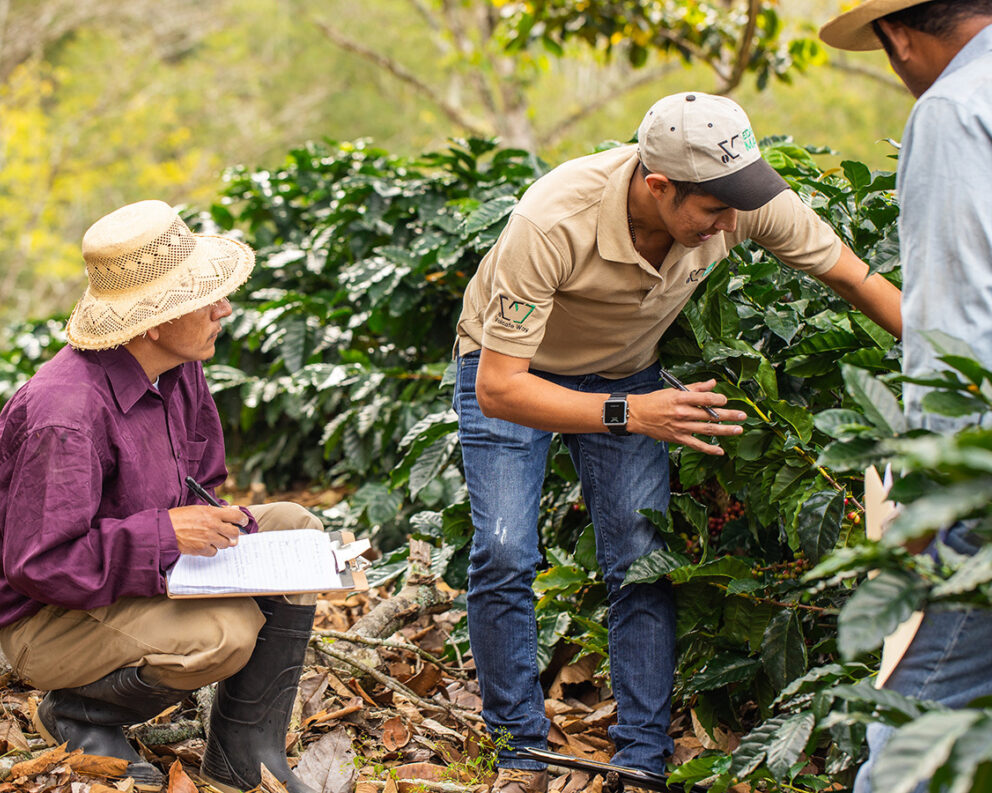
The Volcafe Way farmer support programme trains farmers on business skills and sustainable agricultural practices. Image: Molinos de Honduras
I have seen the change in my farm productivity, in quality, and also in a very important aspect: it has reduced costs. For me it has been very important to work with Molinos de Honduras.
With Volcafe’s facilities and connections to international buyers, the unique coffees these smallholders produce are brought to market in a traceable fashion that can fetch premium prices. “We are happy to see that they are supporting us with the technical part and also taking our product to a better market. To know that our product is recognised internationally – for us, as the Pech community, it’s something to be proud of,” says José Rigoberto Acosta, a coffee farmer in Olancho.
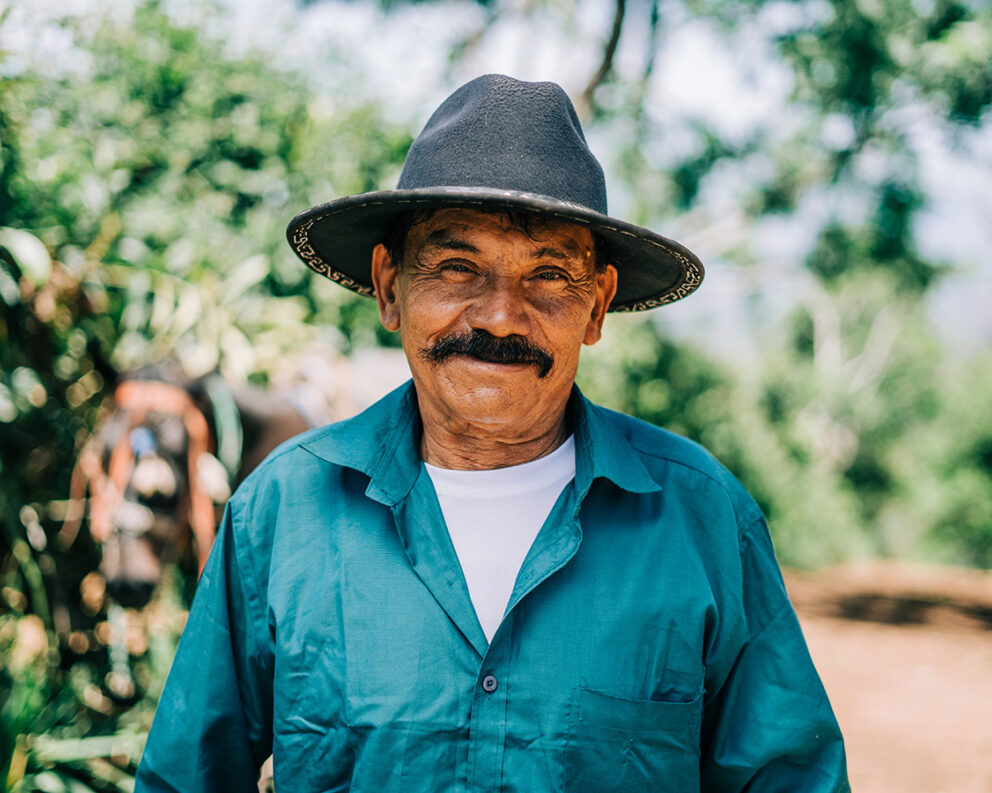
Pedro, a farmer with the coffee group Vision Cafetalera in El Paraiso region. Image: Molinos de Honduras
Beginning with 2,000 coffee farmers in 2015, this partnering approach has expanded to involve over 8,000 smallholders as of 2021. In 2014 – the year before the change in purchasing strategy – middlemen supplied 88% of the coffee to Volcafe in Honduras. As of 2021, that figure has fallen to just 3% – smallholders and cooperatives now directly supply 97% of the coffee. While farmers can still weigh offers from middlemen, by selling directly to Volcafe they are earning about 32% more from their coffee than they did before.
Beyond the numbers, this partnership is focused on making coffee farming a sustainable business that secures farmers’ livelihoods in the years ahead. “It has not been easy to gain the trust of our clients abroad as well as our producers, since this requires many years of work and a lot of dedication from our team in the field, in the international coffee events, with the visits we receive,” notes Arnold René García, Commercial Manager for Volcafe in Honduras. “All this plays an important part in making these [effects] long term, something lasting for the producer.”
Building a different type of business relationship is giving farmers a renewed sense of optimism. As Yesenia Echevarría Martínez, a coffee farmer in Olancho, explains, “They want the best for us, and we also want to give the best for them. And more than anything, in the maintenance techniques of the farms I believe something can be achieved for the future of our children.”
Marie Renou-Ullrich, Head of Marketing and Communications, email hidden; JavaScript is required


